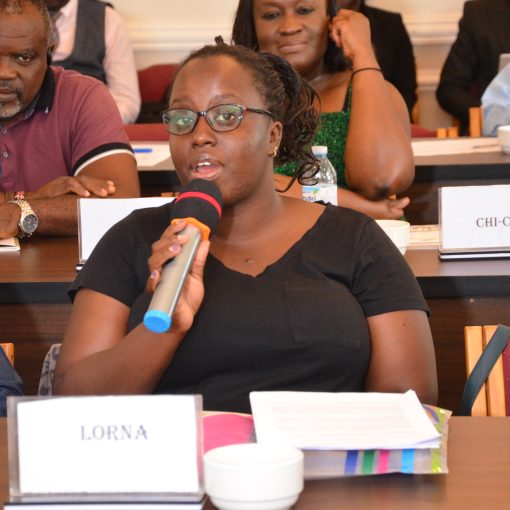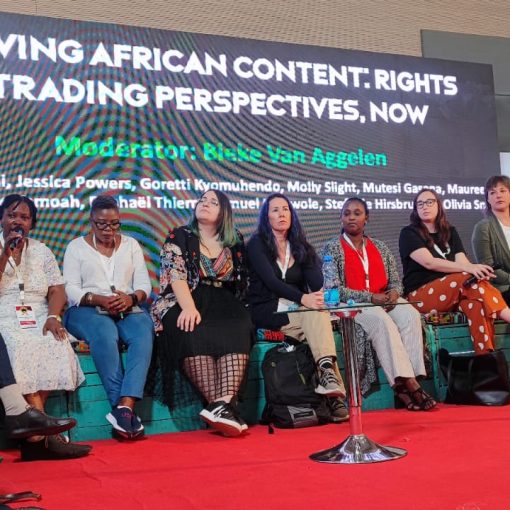The novel Kololo Hill follows one Ugandan Indian family in 1972 when Amin issues a decree expelling all Ugandan Asians within ninety days. Motichand, Jaya, Pran, Asha, and Vijay are no exception to the panic that builds up in the Asian community as they face the grim reality that they must leave the life they have built in Uganda. The story is set against a morbid backdrop of curfews and military night patrols, disappeared people, and rumours of hacked bodies floating on the Nile; Ugandans and Indians alike being violated in all manner of ways by Amin’s soldiers.

In Kololo Hill, Neema Shah has put human faces to a horrid scar on Uganda’s history, while tactfully navigating themes of the British Empire, nationalism, home, and displacement of people whom various histories seemed to be in cahoots to erase. The novel is divided in two sections; Shah manages to navigate the layered tensions that occupy the characters’ lives first in Uganda in those last days before their expulsion, then in their new lives after they have been driven out of Uganda. The Asian community is left feeling bewildered and betrayed because history is not on their side as Pran puts it. ‘We helped them build this country up, made Britain wealthy too, but they’ve forgotten all that commonwealth business now.’ They seem remiss to the fact that they created a social and political divide from the Ugandan community and its problems, by only focusing on their businesses and setting up comfortable lifestyles for themselves. After the expulsion decree they are too embarrassed to admit their folly but still hear it from Ugandan servants like Gres who says, ‘Perhaps if you’d all spent a little more time worrying about other people before, they wouldn’t hate you so much that they want you gone.’
Told by an omniscient narrator, the story is character-driven with each chapter focusing on one character – the exception being Motichand and Pran who get weaved in the others’ story. To Pran, the family business is not only a means of livelihood but also a sense of pride and identity. His drive to save it – even after they have been forced to abandon it – hangs over his relationship with his wife Asha, with his brother Vijay, and eventually with his mother Jaya. Pran’s passion is admirable but it is difficult to like and trust him all the time as one weighs his actions against his own or the family’s benefit. Being the firstborn male and seemingly more physically adept sibling of the family, Pran takes up a dominant position because it is imagined it is his to occupy. He creates friction that constantly threatens the family’s peace and unity; ironically being like Amin the autocrat, who hangs over their lives constantly.
As the family matriarch, Jaya wields the soft power to keep the family peaceful and united. She finds an unlikely companion in December the Ugandan houseboy. For the most part, their relationship is tilted, with December knowing Jaya and her family intimately while Jaya and her family barely take interest in his personal life. Theirs is a delicate balance born by their gender and cultural difference and their master-servant relationship. Later on, however, December permits Jaya to call him by his family name Adenya in a heart-wrenching scene that Jaya never forgets. Despite her position in the family, she feels powerless because the concept of home was decided for her by her marriage, and once again by Idi Amin. ‘Other people decided where she could stay, where her home would be.’
Asha is spirited and opinionated. She takes up space in the household in ways Jaya finds admirable compared to her, ‘… Jaya was in awe of Asha, the way she’d arrived at her new marital home, bold as anything … Jaya, on the other hand, in marriage, as with everything else in life, had made herself fluid.’ She does her best to be a good wife to Pran but often asserts herself when he conceals things from her. Unlike everyone else around her, Asha is the only one who accepts their position on Kololo hill as the privilege it is compared to the rest of the Ugandans. ‘Your place on the hill was directly connected to your wealth, with the richest at the very top … and at the foot of the hill were the cement blocks and corrugated-iron roofs where many of the black Ugandans lived.’ She is determined to leave the horror of Uganda behind make the best of life in England, but this proves difficult because her husband still nurses dreams of returning to Uganda.
As the second brother, Vijay supports his elder brother Pran and the family the best way he can, maybe to a fault. As the story goes on, however, he realises that sometimes he has to put himself first; the few self-serving acts he does are still shadowed by his love for Pran and the stability of the whole family. England presents yet more unique challenges to Vijay but even then, he does not despair. Perhaps that is because he has a more realistic grip of the Ugandan Asian’s elusive place in history at this time. ‘Who would remember them once they were gone? At school, Vijay had taken in all the bookshelves filled with Africa’s history. But it was the history of the English and Germans and French in Africa – the shelves were full: no space for Indians, nor Africans. How could you disappear from history books you’d never been inside in the first place?’
This is a well-crafted novel with easy and beautiful language. The first section is fast-paced but the story slows down in the second. This change in tempo leaves much-needed room to breathe and explore the more internal conflicts that have grown with the characters, but it may be a letdown for the more thrill-seeking reader. The characters were like neighbours I had grown fond of, so I felt disappointed that the author did not give me a neat and definitive ending as to what they finally decided to do. Then again this may have been Neema Shah’s point: that displacement, home, and legacy are fluid things – if humanity is to endure.
Kololo Hill published by Picador is available at African Writers Trust at UGX 60,000. Call/WhatsApp Mark on +256753033086 and +256775685909 for inquiries and deliveries.
–

Review by Lillian Akampurira Aujo, poet and fiction writer from Uganda. She is the winner of the Jalada Prize for Literature 2015 and the Babishai-Niwe Poetry Award 2009. She has been shortlisted for the Gerald Kraak Award 2019, the Brittle Paper Anniversary Award 2018, and longlisted for a Nommo Award 2018 (from the African Speculative Fiction Society). She is a 2017 fellow of the Ebedi Residency in Nigeria. She has presented poetry at the 2017 GIMAC meeting in Addis Ababa. Her work has been published by the Caine Prize, Prairie Schooner, Transition, Jalada, Gerald Kraak Award, Babishai-Niwe Poetry Award, Bahati Books, Omenana, Enkare Review, Brittle Paper, and 20:35 Africa, An Anthology of Contemporary Poetry.




